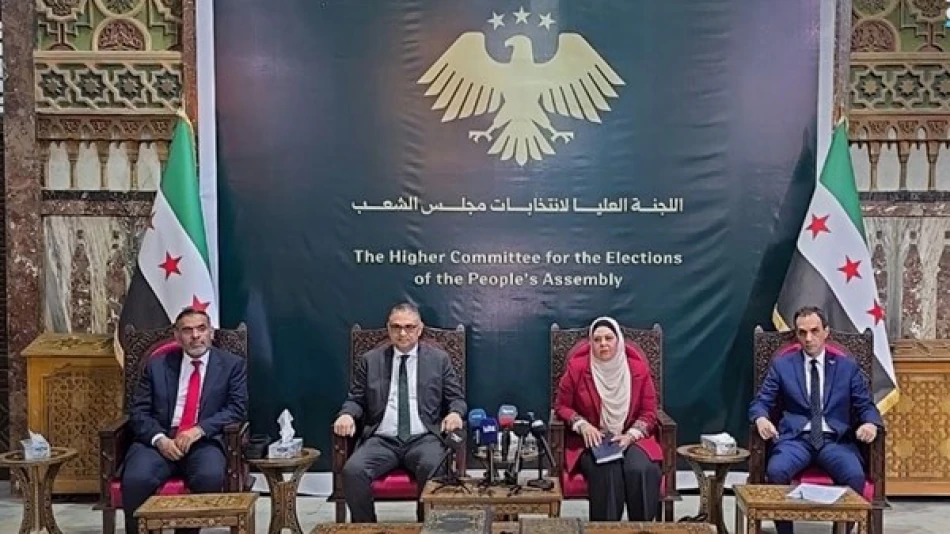
Syria Sets Date for Parliamentary Elections: Crucial Political Development Ahead
Syria Sets October Date for First Parliamentary Elections Under New Leadership
Syria's Supreme Committee for People's Assembly Elections announced Sunday that the country's first parliamentary elections under the new administration will take place on October 5, 2025. This marks a significant step in Syria's political transition after more than a decade of civil war and represents the new government's attempt to establish democratic legitimacy.
What This Election Means
The timing is crucial. By scheduling elections for October, Syria's new leadership is giving itself roughly ten months to establish basic governance structures and potentially gain international recognition. This isn't just about domestic politics - it's about signaling to the world that Syria is ready to rejoin the international community.
The announcement specifies that voting will occur across all Syrian provinces in designated electoral districts. But here's the thing - we don't yet know the details about candidate eligibility, electoral laws, or how displaced Syrians will participate.
The Bigger Picture
Learning From Regional Transitions
Syria's approach mirrors other post-conflict transitions in the region, but with key differences. Tunisia held elections within a year of its revolution in 2011, while Libya's transition has been far more chaotic. Iraq's experience shows that early elections don't guarantee stability - they held their first post-Saddam elections in 2005, but political fragmentation continued for years.
The October timeline suggests Syria's new leaders want to move faster than some regional precedents. Egypt took nearly two years after Mubarak's fall to hold presidential elections, and even then, the results were contested.
International Recognition Stakes
For foreign governments watching Syria, these elections could be a turning point. Many countries are waiting to see concrete democratic progress before fully engaging with the new administration. Successful elections could open doors to international aid, investment, and diplomatic normalization.
But there's a catch - the international community will be watching closely for signs that these elections are genuinely free and fair, not just a democratic facade.
What Comes Next
The real test isn't the announcement - it's the implementation. Syria needs to establish electoral laws, register voters (including millions of displaced people), ensure security at polling stations, and convince opposition groups to participate rather than boycott.
The new government also faces the challenge of rebuilding basic infrastructure needed for elections while managing ongoing security concerns and economic pressures.
For Syrians who have endured years of conflict, these elections represent both hope and uncertainty. The outcome will likely shape not just Syria's political future, but its relationships with neighbors and the broader international community for years to come.
Most Viewed News

 Layla Al Mansoori
Layla Al Mansoori






